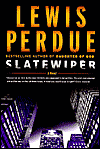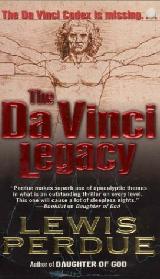American Apartheid - No Negroes Allowed in Bookstores?
This disturbing article appeared in the Guardian (U.K.) yesterday. I can find no words suitable for comment.
Why I'm not allowed my book title

Are we on the same page? ... Novelist Lawrence Hill
It isn't unusual for British or Canadian books to change titles when entering the American market. It happened to JK Rowling - Harry Potter has no "philosopher's" stone in the USA; and to Alice Munro, whose fabulous collection of short stories went from Who Do You Think You Are? in Canada to The Beggar Maid in the USA.
But I didn't think it would happen to me. When my novel, The Book of Negroes, came out last year with HarperCollins Canada, I was assured by my American publisher that the original title would be fine by them. However, several months later, I got a nervous email from my editor in New York.
She mentioned that the book cover would soon be going to the printer and that the title had to change. "Negroes" would not fly, or be allowed to fly, in American bookstore. At first, I was irritated, but gradually I've come to make my peace with the new title, Someone Knows My Name.
Perhaps the best way to examine the issue is to examine the evolution of the word "Negro" in America. I descend (on my father's side) from African-Americans. My own father, who was born in 1923, fled the United States with my white mother the day after they married in 1953. As my mother is fond of saying, at the time even federal government cafeterias were segregated. It was no place for an interracial couple to live.
My parents, who became pioneers of the human rights movement in Canada, used the word Negro as a term of respect and pride. My American relatives all used it to describe themselves. I found it in the literature I began to consume as a teenager: one of the most famous poems by Langston Hughes, for example, is The Negro Speaks of Rivers. When my own father was appointed head of the Ontario Human Rights Commission in 1973, the Toronto Globe and Mail's headline noted that a "Negro" had been appointed.
The term was in vogue right into the 1970s. For a time, the word "Negro" took a back seat in popular language culture to newer terms, such as "Afro-American", "African-Canadian", "people of colour" (a term I have always disliked, for its pomposity) or just plain "black."
In the last 20 or so years in urban America, we have witnessed more changes in racial terminology. For one thing, and regrettably in my view, many hip-hop artists have re-appropriated the word "nigger", tried to tame it, and use it so vocally and frequently as to strip it of its hateful origins. We are all products of our generation.
Given that I was born in 1957 and taught to ball my fists against anybody using that N-word, I can't quite get my head around using it these days in any kind of peaceful or respectful manner. Just as the very word "nigger" has risen in popular usage over the last decade or two, however, the word "Negro" has become viscerally rude. In urban America, to call someone a Negro is to ask to for trouble. It suggests that the designated person has no authenticity, no backbone, no individuality, and is nothing more than an Uncle Tom to the white man.
I used The Book of Negroes as the title for my novel, in Canada, because it derives from a historical document of the same name kept by British naval officers at the tail end of the American Revolutionary War. It documents the 3,000 blacks who had served the King in the war and were fleeing Manhattan for Canada in 1783. Unless you were in The Book of Negroes, you couldn't escape to Canada. My character, an African woman named Aminata Diallo whose story is based on this history, has to get into the book before she gets out.
In my country, few people have complained to me about the title, and nobody continues to do so after I explain its historical origins. I think it's partly because the word "Negro" resonates differently in Canada. If you use it in Toronto or Montreal, you are probably just indicating publicly that you are out of touch with how people speak these days. But if you use it in Brooklyn or Boston, you are asking to have your nose broken. When I began touring with the novel in some of the major US cities, literary African-Americans kept approaching me and telling me it was a good thing indeed that the title had changed, because they would never have touched the book with its Canadian title.
I'd rather have the novel read under a different title than not read at all, so perhaps my editor in New York made the right call. After all, she lives in the country, and I don't. I just have one question. Now that the novel has won the Commonwealth writers' prize, if it finds a British publisher, what will the title be in the UK?


0 Comments:
Post a Comment
<< Home